|
Recently, I celebrated my graduation from my PhD program. As I stood in line of the academic procession, waiting for the moment to cross the stage when my name was called, I caught the eye of a former professor who was standing near me. Without saying a word, this professor reached out her hand and clasped mine, and smiled so proudly at me. Just a few years before, I encountered this smile in my professor’s office as I confided in her about my anxiety about my future, my career plans, and my relationships. My professor had listened patiently as I told her about a challenging situation I was going through, offering words of wisdom and encouragement. Since that day, my professor continued to accompany me. She often became the person I sought out for advice or guidance, always eager to draw on her own experience as a doctoral student, Catholic, and woman to help me find the next step on my path. I could not help but imagine that, on the day of my graduation as she stretched out her hands towards me, my professor remembered just how much anxiety, worry, and fear I had to navigate to get to that day. Unlike many others who just saw fancy academic regalia and a large diploma, my professor had seen the challenges that I went through that others did not understand. As she gripped my hand and smiled, my professor remembered my journey and knew the deep meaning of it. She had been with me on the journey as my professor. She was able to offer wisdom to me because she had also been on the journey herself. Today’s feast is the Feast of the Visitation, which I believe invites us to contemplate those who have been on the journeys of our lives with us, who understand so much more than others who just perceive our lives at surface level. In other words, the Feast of the Visitation calls us to consider those who live in solidarity with us, walking with us and helping us to consider the work of God in our lives. In today’s Gospel, we see the excitement of Elizabeth and the infant, John the Baptist, in her womb as Mary greets them. Though the words of the Gospel do not reveal all the details about Mary’s and Elizabeth’s conversations with one another, I like to imagine and fill in the gaps. Both women might have shared their stories with one another about their encounters with angels and miraculous pregnancies. Imagine the laughter, sighs of relief, and the words ”You, too?!” exchanged with one another in the telling of their stories. Think of what their conversations sounded like: posing questions to one another, offering insights, and asking, “What could this mean for us?” Consider what emotions both women might have felt when they recognized they weren’t isolated in their experience any longer. Though Mary had Joseph and Elizabeth had Zechariah, imagine what it must have been like to feel seen and understood by another who had also been through such a unique and particular experience. The Feast of the Visitation reminds us of a great truth that Pope Francis himself often makes reference to: that in the Christian life, we are never meant to be isolated. We are meant to be seen, known, understood, and accompanied. In Fratelli Tutti, the pope writes, “Once more we realiz[e] that no one is saved alone; we can only be saved together.” In Mary’s and Elizabeth’s case, the two women considered the mystery of what happened to them together. They were able to consider the meaning of each other’s story in a profound way because of their own separate experiences. In the moment I shared with my former professor on my graduation day, I was reminded of someone who walked with me during my years in my doctoral program, and shared solidarity with me in the struggles I navigated. Without the accompaniment of my professor, my journey would have felt isolating, with no one to share questions, experiences, and “You, too?!” with. The Visitation invites us to consider those who walk with us and bear witness to significant moments in our lives. Who is with you on your journey? Who has made you feel seen, known, and accompanied, and how are you called to be with others on their journeys?
0 Comments
I have always cringed when I have heard people describe new and seasoned mothers as “cute” or “adorable.” Though those things might be true, and though I might be biased as someone who is not a mother, I have always seen motherhood in a different light. “Cute” and “adorable” do not capture the fearsome and challenging vocation of being a mother. To me, motherhood seems tenacious, fierce, and strong. My perspective of motherhood has been shaped by my own mother. My mom, a Danish and Irish Catholic originally from Long Island, is the sweetest and loveliest person you will meet. She has a discerning eye for the most appropriate greeting card for any occasion. She generously picks out treats from my favorite bakery and thoughtfully compiles care packages to extend her love from across the miles. Sparing no opportunity to offer encouragement, a listening ear, and hope, my mom’s gentleness and kindness continue to leave a lasting impact on my life. At the same time, my mother is fierce. When my sister or I have experienced painful moments in our lives, my mom has sat with us, shared our anger or sadness, but also encouraged us to get up, have courage, and continue on. I watched her care for my grandmother with tenderness during my grandmother’s last years of life. Despite the many emotions that came with caring for an aging parent, my mother never relented in her patience or warmth though my grandmother was often scared or unsteady on her feet. I think often of how I learned to be strong and accompany others because of watching how my mom carried herself and listened patiently to others. I think the virtue that my mom has cultivated within me the most is hope, as she often reminded my sister and me that, though we might find ourselves sad or in pain in challenging moments, “the birds will still sing, and the sun will come up tomorrow.” There are many moments when my mom’s strength, protectiveness, and ferocity have come to the fore. However, there is one story in particular that I believe encapsulates my mother’s strength. When I was 8 or 9, my family vacationed at a beach in the South Carolina low-country. I loved to play in the ocean and would often lose myself jumping and swimming in the salty waves. One day, when I was swimming in the ocean and immersed fully under the water, I felt a hand grab my wrist and pull me out of the water. It was my mother. From where she was standing on the shore, she had run into the water to drag me back onto the beach because she had seen a large shark fin making its way on the surface of the water towards where I was swimming. In the Book of Wisdom, Chapter 7, there are beautiful verses describing Wisdom, often personified in the Hebrew scriptures as a woman. One verse in particular has always been my favorite and reminds me of the strength and ferocity of women in my life, especially my mother: “For she is the breath of the might of God” (Wisdom 7:25). When I think of this verse, I consider the unfathomable strength and ferocity of God. From our Scriptures, we know that the might of God has destroyed armies (2 Kings 19:35-37), parted the Red Sea (Exodus 14), created the world (Genesis 1-2), healed the sick (Matthew 14:14), and brought the dead back to life (John 20). At the same time, the word “breath” evokes a gentle sensation of air that is cooling, reviving, and life-giving. A breath is a small share in an organism’s larger pattern of breathing and is just one small part of the total function of a living being. From my view, it seems to me that my mother, as well as all mothers, have the capability to be “a breath of the might of God.” Mothers have the power to give life, protect, defend, encourage, and strengthen. They share in the power of God’s might through their steadfastness, gentleness, fierceness, and love. Mothers, because they share in God’s might, invite us to contemplate God’s own fierceness, love, tenacity, and tenderness. Much like my mom letting nothing stop her from pulling me out of the water to protect me from a shark, God also is relentless in wanting to be in relationship with us as God’s beloved children. Like my mother cared for my grandmother with patience and tenderness, God also gifts us merciful, gentle love no matter the state we are in. Just as my mom continues to listen, encourage, and instill hope, God also accepts us and loves us just as we are. Though God’s power and might is totally incomprehensible to us as human beings, we may know it in a small way through the gift of our mothers.
In the Church, we have a timely liturgical schedule of feasts, seasons, and commemorations. Each year, we practice prayer, fasting, and almsgiving during the season of Lent in order to prepare ourselves for the Resurrection of the Lord at Easter. In Advent, we hear readings from Isaiah that help us to turn our attention to the coming of Christ both in his nativity at Christmas and at the end of time. In addition to these seasons, we also celebrate individual days as part of practicing our faith. On St. Therese’s feast day, we ask for roses to cross our path to confirm her intercession for us. On All Souls’ Day, we remember those who have died and pray for their sanctification. According to paragraph 102 of the Dogmatic Constitution on the Sacred Liturgy, or Sacrosanctum Concilium, in celebrating these feasts and seasons, the Church “unfolds the whole mystery of Christ, from the incarnation and birth until the ascension, the day of Pentecost, and the expectation of blessed hope and of the coming of the Lord.” In other words, the variety of feasts and seasons allow us to contemplate the life and mystery of Christ from different angles. For example, at Christmas, the Church looks with awe upon God becoming human in the Incarnation. On the feast day of the Annunciation, we reflect on God’s total initiative to redeem the human race with the collaboration of Mary’s fiat. Celebrating the witness of the saints on their feast days inspires us that we too can witness to the love of God in large and small ways in our lives. Each of these examples gives us glimpses at aspects of our faith and renews our devotion to “the whole mystery of Christ.” Why is it important to mark particular days and seasons as days to commemorate certain aspects of our faith? Further along in paragraph 102 of Sacrosanctum Concilium, we find the answer: “Recalling thus the mysteries of redemption, the Church opens to the faithful the riches of her Lord's powers and merits, so that these are in some way made present for all time, and the faithful are enabled to lay hold upon them and become filled with saving grace.” In short, celebrating these feasts and seasons help us grow in grace. We hear readings that help us think about what the feast commemorates. We pray particular prayers that ask for the intercession of the saints we celebrate. We participate in special traditions, such as creating offrendas during All Souls Day, or preparing large feasts on the feast day of St. Joseph. Because of the liturgical calendar, we are invited to stop and be drawn into contemplation of the love of God. The love of God is not something we are invited to contemplate only on days or seasons marked by the official liturgical calendar. In addition, we can also continue to allow our attention to be drawn to the love of God in the feasts and seasons in our personal lives. For example, we might keep vigil on a particular date each year to remember the death of a loved one. We might even mark the difficult or challenging events of our lives, such as the date of a breakup, the date of a move away from a former home, or the date of a medical diagnosis. On the other hand, we may call to mind particular dates of joyful occasions, such as the acceptance into a school, a proposal or marriage, or coming home from military service. Just like formal feast days, the informal feast days of our lives also allow us to contemplate the mystery of Christ and the love of God through different lenses. The date of a breakup might remind us of the pain we went through, but the eventual freedom we may have found later on by trusting in God’s providence. Commemorating the date of the death of a loved one each year might give us the chance to reflect on the gift of friendships and relationships in our lives and how they have contributed to our growth and becoming. Keeping memory of the date of an initial medical diagnosis might allow us to think about our reliance on God and remind us to unite our suffering with Christ’s suffering. The anniversary of a wedding or proposal punctuates our lives with gratitude for a partner or spouse. In keeping our own personal liturgical calendar in addition to the Church’s formal liturgical calendar, we are invited to contemplate the “whole of the mystery of Christ” in our own personal lives. We can reflect upon the love and providence of God made manifest not only in the feast days of the Church’s formal liturgical calendar, but also in the significant events in our lives that have drawn us deeper into the mystery of our own relationship with God and others. By punctuating our lives with universal and personal liturgical feasts, we call to mind Christ’s words in the Gospel of Matthew in a profound way: “And behold, I am with you always, until the end of the age” (Matthew 28:20). What are some days or seasons in your life that you might add to your personal liturgical calendar? In remembering these dates, how are you being invited to contemplate God’s love for you?
One of the greatest gifts of Pope Francis’s pontificate is our pope’s willingness to write and speak about the day-to-day realities of many people everywhere. However, there is one experience which Pope Francis writes about that resonates with me most strikingly as a young adult and young professional: anxiety. And, according to the National Alliance on Mental Illness (NAMI), I am probably not the only person with whom Pope Francis’s words resonate. In 2020, an estimated 48 million people experienced an anxiety disorder. Anxiety and anxiety disorders exist on a spectrum, ranging from mild interference with professional, relational, and/or other aspects of a person’s life, to causing major difficulties performing basic functions of human life. In other words, anxiety can look like worrying about an upcoming meeting to the extent that it causes racing thoughts and accelerated heartbeat or it can look like a debilitating fear that causes avoidance of daily plans and activities altogether. So, what does Pope Francis have to say about this wide-ranging experience that shows up in the lives of so many? In his 2018 Apostolic Exhortation, Gaudete et Exsultate, Pope Francis sees anxiety as something that can cause us to act for the wrong reasons: “Needless to say, anything done out of anxiety, pride or the need to impress others will not lead to holiness. We are challenged to show our commitment in such a way that everything we do has evangelical meaning and identifies us all the more with Jesus Christ.” Here, Pope Francis identifies that the worries, racing thoughts, and fears can thwart our best judgment and right intentions. Experiencing anxiety can cause us to miss the mark in our perceptions of others, ourselves, or certain situations. Rather than coming from a place of a collected and balanced mindset, we may be influenced by anxiety to choose to act out of fear or worry. In his 2013 Apostolic Exhortation, Evangelii Gaudium, Pope Francis shares a similar sentiment. When describing the patience and time it takes to promote the common good of a society in paragraph 223, our pope encourages, “What we need, then, is to give priority to actions which generate new processes in society and engage other persons and groups who can develop them to the point where they bear fruit in significant historical events. Without anxiety, but with clear convictions and tenacity.” Here, Pope Francis follows a similar thought to Gaudete et Exsultate: anxiety clouds our judgment and perceptions—preventing us from taking clear steps forward in difficult situations or relationship challenges. Perhaps Pope Francis’s punchiest paragraph on anxiety comes from Christus Vivit. In paragraph 142, he cautions young people and the entire church in falling prey to the fear and paralysis that comes from anxiety: “Keep following your hopes and dreams. But be careful about one temptation that can hold us back. It is anxiety. Anxiety can work against us by making us give up whenever we do not see instant results. Our best dreams are only attained through hope, patience and commitment, and not in haste. At the same time, we should not be hesitant, afraid to take chances or make mistakes. Avoid the paralysis of the living dead, who have no life because they are afraid to take risks, to make mistakes or to persevere in their commitments. Even if you make mistakes, you can always get up and start over, for no one has the right to rob you of hope.” Here, Pope Francis highlights how anxiety can prevent us from moving forward. How often are we afraid to pick up the phone and call a friend that we haven’t spoken to in a while because we are anxious about what to say? Or how many times have we put off a difficult conversation because we are fearful about how it might change our relationship with the other person with whom we speak? How many times have we passed up applying for that school, a certain job, or taking on a particular project because we are afraid that our abilities wouldn’t measure up? For Pope Francis, many of these situations have anxiety at their root. So, what can we make of how Pope Francis writes about anxiety? For our pope, anxiety is a difficult and challenging issue. Though Pope Francis mentions anxiety can affect a person’s life negatively, notice that he never mentions anxiety as sinful. Like other health and mental health conditions and experiences, anxiety itself is not a sin and is not a punishment for sin, but rather comes from our imperfect human nature. What Pope Francis does hint at, though, is that learning to live with anxiety contributes to our holiness. How does learning to live with anxiety contribute to our growth in holiness? Learning to manage our anxiety—whether through a relationship with a licensed therapist, medication, self-care practices, or other means of support—allows us to live out our calling to holiness more freely and generously. Anxiety causes us to make decisions, act, and cope with the situations of life out of worry, nervousness, and fear. Managing our anxiety allows us to learn to live more mindfully and intentionally, gain insight into what is causing our fear and worry, and make choices to act from a place of balance and discernment. In other words, instead of being paralyzed by anxiety, learning to manage it allows us to respond to others and situations in our lives more thoughtfully—seeing them not as threats or reasons to make judgments out of fear, but opportunities for us to be drawn out of ourselves, despite our nervousness or fear. If holiness means to set apart our lives for God’s action and living out our mission, our experience of anxiety can be a part of our vocation to holiness as we see it as an opportunity to grow, become more generous, place our trust in God, and challenge our fears. As Pope Francis encourages us in paragraph 143 of Christus Vivit, “Take risks, even if it means making mistakes. Don’t go through life anesthetized or approach the world like tourists. Make a ruckus! Cast out the fears that paralyze you, so that you don’t become young mummies.”
Over the last several years of my life, I have read, studied, and written hundreds of pages about what Pope Francis meant when he said in Evangelii Gaudium that “The Church will have to initiate everyone – priests, religious and laity – into this ‘art of accompaniment’ which teaches us to remove our sandals before the sacred ground of the other” (169). However, nothing has ever taught me more about accompaniment than one of the most special people I have ever known in my life: my grandmother.
My grandmother, Edith Lauritzen, was born a second-generation Irish Catholic in 1928 in Queens, New York. She was soft-spoken but had a hearty laugh that made an appearance in most conversations. Her favorite food was Chicken Parmesan, and she taught me the first prayers I ever learned. Sometimes, my grandmother would pick my sister and me up after school and treat us to ice cream. She would ask us about our day at school, and listen generously, as if the happenings of my sister’s and my days at elementary school were the most riveting and important things she could devote her time to. I spent a good bit of my early childhood with my grandmother, and when my grandfather passed away, she moved in with my family to a small bedroom on the first floor of our home. In our house, my grandmother was a steady presence in my life; her warmth, laughter, and joy were always a comfort. I enjoyed spending time with her and would sometimes wake up early in the morning if I heard her making her breakfast of toast and coffee in the kitchen just so that I could spend time with her. As I grew up, our shared Catholic faith became a topic of frequent conversation. In middle and high school, I remember spending hours talking with her in her bedroom. My grandmother’s room was small, with space only for her bed, dresser, and an armchair. The feeling of my foot falling asleep sticks with me as I reflect on talking with her, as sometimes our conversations lasted hours as I sat cross-legged on her wooden floor. Beyond some vague memories of the topics of prayer, the lives of the saints, and my hopes to visit St. Peter’s basilica one day, I do not remember anything specific about the topics of conversation. Rather, what rises to the surface in my memory of those conversations with my grandmother is her listening, her interest in my thoughts, and her joyful, warm presence that created the space for me to speak up and share my insights with a woman with 65 more years of life experience. Now, I look back and know that I might have spoken with a little too much certainty about God and the things of faith, and probably mused a little too grandiosely about my reflections on what certain Gospel readings meant. However, that didn’t matter to my grandmother. This was the gift that my grandmother gave to me: taking my faith, questions, and thoughts seriously. My grandmother could have seen my early, inexperienced love of my faith as childish or naïve. Instead, I think she saw my faith as wisdom, blooming and in process, attempting to make sense of God and life. In front of my grandmother’s armchair and unbeknownst to us both, my vocation as a theologian and woman of faith was being nurtured and cultivated. After my first year at college, my family had to move my grandmother to an assisted living home as she needed more care than we could provide at my house. I was devastated. My home felt like it lost a little bit of warmth. However, that first summer after my freshman year of college, I made it part of my daily routine to visit my grandmother. I spent afternoons with her, listening to her thoughts and reflections on her life, her stories about growing up with the other children in her neighborhood in Queens, and her relationship with my grandfather. We laughed as she told stories about living in New York, what it was like to go to Mass in Latin, and why she loved St. Thérèse (her favorite saint). Before moving to the assisted living home, my grandmother had never lived away from home, so sometimes, she would cry. I learned in those moments that what was important was not me offering some nugget of wisdom from our faith that would help her to reframe her thinking, but for me to be there, hold her hand, and be present. In the days after those afternoons where there were more tears than laughter in her voice, I would make sure to bring her a cup of chocolate ice cream to lift her spirits. It did not take long for me to realize it was now my turn to accompany my grandmother, just as she had accompanied me in my childhood and teenage years. Two summers later, my grandmother passed away. It was one of the most painful days of my life. At the same time, I was overjoyed at the thought of my grandmother getting to experience something so much better than our hours of conversation together about our faith: God himself. At my grandmother’s funeral Mass, one of the hymns my family selected was “O God Beyond All Praising.” While the entire hymn is a perfect way to describe the gift that my grandmother was to everyone she encountered, the words of the second verse have always particularly stuck out to me when I think about her: “The flower of earthly splendor in time must surely die, its fragile bloom surrender to you the Lord most high; but hidden from all nature the eternal seed is sown - though small in mortal stature, to heaven's garden grown” In reflecting upon my relationship with my grandmother, I think about how her accompaniment of me planted seeds in my life that continue to bloom and grow. Though she was older and weaker, my grandmother passed on to me the gift of faith, a gift that is an eternal reality that we share, and that I hope will bring us together in the next life. Even when my faith was more composed of immature certainty and over-zealous explanations of Scripture, my grandmother saw more than that. And, when it was my turn to accompany my grandmother in the last years of her life, she gave me the gift of continuing to grow these seeds of faith through my own cultivation of patient listening and presence. For me, my grandmother is a model of accompaniment, and was a witness to what Pope Francis writes in Evangelii Gaudium of the listening and patience required in accompaniment: “Only through such respectful and compassionate listening can we enter on the paths of true growth and awaken a yearning for the Christian ideal: the desire to respond fully to God’s love and to bring to fruition what he has sown in our lives (171).” Through my grandmother’s love, I learned to listen to God and respond to His love. I know the seeds of my faith are continuing to grow and bloom even after my grandmother’s death as she accompanies me with her prayers. For more resources on accompaniment, please click here.
In this week’s Gospel, we hear Jesus encouraging us to “Be watchful! Be alert!” in waiting for the coming of the Reign of God. Jesus uses the image of a homeowner who first secures his home and belongings before leaving to take a trip. Because his travels take him far from his property, the homeowner is intentional about ensuring that his own property is in order before setting out for a new road and destination. We might imagine the factors that would drive his painstakingly detailed preparations: extra security to protect his home from thieves, people to check on the resources of the house to make sure that it doesn’t flood or become too drafty without anyone inhabiting it, and perhaps also to achieve a sense of his own inner peace, that he has taken an active role in protecting his property. Jesus’ parable reminds us the importance of securing our own “inner” home and taking an active role in preparing ourselves for our own journeys in life. For me, this parable brings to mind the importance of engaging in our own formation. During my time as an apprentice catechetical leader as part of the University of Notre Dame’s Echo Faith Formation Leadership Program, I was introduced to the hard work of formation. Formation is the intentional cultivation of our spiritual, human, intellectual, and pastoral qualities as human beings that allows us to live out our call to holiness in a generous and healthy way in ministry. In Echo, I entered the world of professional ministry for the first time. I learned quickly that ministry calls us to give deeply of ourselves; however, in being new to ministry, I neglected to secure my own “inner home” of my mind, heart, body, and soul before journeying out of myself to encounter others in the work of evangelization and catechesis. I was susceptible to the outside thieves of comparison, results-driven ministry, and how I could best show off my training and theological knowledge to those I served. In order to make an offering of my own life in ministry that truly served the coming of the reign of God and did not depend on my own efforts or ego, I had to learn to engage my own formation. I intentionally cultivated a life of prayer, took care in applying my studies in catechesis and ministry to my work, and reflected and healed through a relationship with a therapist. Over time, I felt revitalized and more able to cooperate with the Spirit’s work in my life and ministry because I was no longer focused on just trying to survive. Service Suggestion: In the Christian life, we are called to accompany others in the life of faith. A relationship of accompaniment is a perfect setting for formation; it allows us to lean on and learn from each other how best to imitate Jesus in our life. Is there someone in your own life, especially in difficult circumstances, who you might intentionally accompany this Advent? How can you help them secure their own “inner” house on the journey of faith through walking with them in solidarity, mutuality, and listening? Focus: Spirituality By failing at trying to minister based on my own efforts to be the most knowledgeable and most available to those I served, I learned that with the help of the Holy Spirit, I had to engage my own formation so I could be awake, alert, and ready to make of myself a healthy and holy offering. Through formation, I grew to become a minister with her house in order while being on the journey of faith and ministry, prepared to meet Jesus in those I served “whether in the evening, or at midnight, or at cockcrow, or in the morning.” How can you aim to put your own inner house in order this Advent? Are there spaces in your life where you can engage in your own formation in order to make a more generous and healthy offering of your life? Prayer God, Isaiah speaks out “Yet, O Lord, you are our father; we are the clay and you the potter: we are all the work of your hands.” We remember that our lives are the spaces where our salvation unfolds, where we are formed and shaped into art by you, the Artist of Artists. Send your Spirit upon us to be moved by those you place in our path so we may be formed in compassion, empathy, and solidarity. Strengthen us to take an active role in shaping our world to be a reflection of your infinite love through the witness of our lives. Amen.
What image comes to mind when you hear the word conversion? To many, the words of those who encountered Jesus in his earthly ministry may come to mind. Conversion may sound like the cry of the Samaritan woman in John’s Gospel: “Come and see a man who told me everything I have done. Could he possibly be the Messiah?” (John 4:29). Perhaps Caravaggio’s The Conversion on the Way to Damascus rises to the surface, an expression of a dramatic scene illustrated with a few artistic liberties. Still, we may associate conversion with a story like St. Augustine: a turning from a former life of debauchery or sin to a life lived in pursuit of God. Because of the art that is important to our faith, cultures, and families, we may assume conversion to be a dramatic, “lightning-bolt” moment: brief, intense, supernatural, and immediately transformative. While our tradition does speak of the reality of dramatic conversions, conversion itself is often more gradual and organic. For those of us whose lives have not yet become hagiography, what does conversion look like? More particularly, what does conversion look like for us in this particular moment, in our current context of history and life? First of all, what is conversion? Conversion, according to the Catechism of the Catholic Church, is “a radical reorientation of our whole life, a return, a conversion to God with all our heart, an end of sin, a turning away from evil, with repugnance toward the evil actions we have committed. At the same time it entails the desire and resolution to change one's life, with hope in God's mercy and trust in the help of his grace” (CCC, #1431). It is “first of all a work of the grace of God who makes our hearts return to him,” and is not “aim[ed] first at outward works, ‘sackcloth and ashes,’ fasting and mortification, but at the conversion of the heart, interior conversion” (CCC #1432 and #1430). In other words, conversion is a movement away from sin, a re-ordering of priorities with Christ re-categorized as the center of our lives. It is something that occurs through supernatural grace and the initiative of the Holy Spirit, first changing our hearts and minds, but through our cooperation, manifests itself in everyday actions or “visible signs” (CCC #1430). The process of conversion, for most of us, is not instantaneous; rather, it usually a slow, gradual process that involves daily recommitment and practice. In a 2017 audience, Pope Francis reflected on the gradualness of conversion this way: “Avoiding evil and learning to do good: this is the rule of conversion. Because being converted doesn’t come from a fairy who converts us with a magic wand: No! It’s a journey. It’s a journey of avoiding and of learning.” As Pope Francis highlights, conversion can be as simple as learning something new. It involves openness to re-orienting our priorities, changing our opinions, reconsidering our worldview, and engaging with the truth. However, the gradual process of conversion doesn’t start and end with us; it is always oriented towards the building up of humanity and being brought more deeply into right relationship with God and one another. Conversion always has a social and relational impact. As the Catechism of the Catholic Church notes, “Conversion is accomplished in daily life by gestures of reconciliation, concern for the poor, the exercise and defense of justice and right, by the admission of faults to one's brethren, fraternal correction, revision of life, examination of conscience, spiritual direction, acceptance of suffering, endurance of persecution for the sake of righteousness” (#1435). Our actions towards our neighbors, God, and the world around us is where our conversion is realized and bears “fruit that will last” (John 15:16). Conversion has both vertical and horizontal dimensions to it; it calls us to recognize ourselves as Beloved children of God, and, at the same time, recognize this Belovedness in our neighbors more clearly as a result of the transforming love of God. We are called to learn more, think more deeply, and consider more thoroughly, especially when the common good of our neighbor is at stake: “It follows that Christian conversion demands reviewing especially those areas and aspects of life ‘related to the social order and the pursuit of the common good.’” (Evangelii Gaudium, 182). When we say that the Christian life is one of on-going conversion, we simply mean this: we are called to learn of our and our neighbors’ Belovedness over and over again and re-commit to it each day. This learning is not merely intellectual, but is also a deep education and formation of the heart and soul that spills over into our concrete lives. In our period of history and social context, conversion may be less dramatic and more gradual for most of us than some of the saints and figures of our faith. However, that does not mean that it is any less exciting! Our personal process of conversion can start as the size of a mustard seed, and grow into a deeply authentic faith that changes the world: “An authentic faith – which is never comfortable or completely personal – always involves a deep desire to change the world, to transmit values, to leave this earth somehow better that we found it” (Evangelii Gaudium, 183). What is going on in our world and in the lives of our neighbors that is calling us to conversion? What new things or viewpoints are we being called to learn or unlearn to realize our Belovedness and the Belovedness of our neighbor? How can we be more open to living a life of ongoing conversion?
In the past few months, most of us have had to confront loss. Some of those losses have been very visible and salient, costing us our jobs, loved ones, and financial security. Others have been less tangible, and yet still impact large parts of our lives: important events have been placed on hold or canceled, relationships have been strained due to distance, and the feeling of having things to look forward to has dissipated. In the aftermath of stay-at-home orders and the pandemic, those of us with these less visible losses might find ourselves minimizing the pain or disappointment we feel. We might compare our smaller losses with those who have undoubtedly encountered more suffering than we have. We may feel that compared to others who have lost jobs, loved ones, homes, or security, we have no right to feel sadness, anger, or disappointment. We might even be preventing ourselves from experiencing grief. Grief is something natural to our human journey. Like other emotions and emotional processes that we experience as human beings, grief provides us with information to our minds and bodies so that we can survive. In the face of loss, grief serves the purpose of communicating to us that we have encountered a lack of something that was formerly present and available to us. Whether it is the loss of a loved one, job, role on a team or in a workforce, friendship, feeling of security, or a sense of hope, grief helps communicate to us what is most important in our lives. In other words, grief helps inform us regarding what we set our hearts on and what brings us joy and safety. Grief not only touches the realm of the emotions and the psyche; it also is essential to our faith tradition. In Scripture, the words of grief are especially echoed in the psalms: “My tears have been my bread day and night, as they ask me every day, “Where is your God?” Those times I recall as I pour out my soul, When I would cross over to the shrine of the Mighty One, to the house of God, Amid loud cries of thanksgiving, with the multitude keeping festival. Why are you downcast, my soul; why do you groan within me? Wait for God, for I shall again praise him, my savior and my God.” (Psalm 42: 4-6) We even see Jesus grieve several places in the Gospels, such as at the death of his friend Lazarus (John 11:35), and even at the suffering he was to experience to carry out our salvation (Luke 22:44). In Catholic funerals, we name and acknowledge the reality of grief in our prayers during our liturgical rites—an important part of believing in and living with Paschal hope. Grief is not just an emotional process for death or large losses. While it is important to keep a clear perspective about the magnitude of the losses we experience in comparison to the suffering of others, grieving the less tangible and visible losses we experience is an important step to healing and cultivating our mental and emotional health. Additionally, ensuring that we allow ourselves to experience grief, even in response to comparatively smaller losses, can help us grow in holiness. Experiencing grief can help us to find new meaning in our faith, deepen our relationship with God and others, and continue to grow in knowledge of ourselves before God. So, how are we to allow ourselves to grieve the smaller losses we have experienced in recent months? What are some ways to grieve the rescheduled or canceled graduations, weddings, and festivals, or the lack of opportunity to do the things we enjoy or to spend time with people whom we love? Emotional Processing vs. Emotional Bypassing Instead of dismissing ourselves or invalidating the emotions we are experiencing (also known as emotional bypassing), we can allow ourselves to grieve more fully by feeling our emotions and asking questions about what we feel, otherwise known as emotional processing. For example, instead of dismissing how we feel by thinking, “It could be worse!”, it is more helpful to our healing to ask questions such as “What is my sadness and anger telling me about what I love or what’s important to me?” In acknowledging our pain and asking ourselves questions about how we feel, we can grow in self-knowledge and self-understanding about the way in which God has created us. We can also engage in processing with a trusted friend, mentor, or mental health professional. Allowing Physical Release Grief, like other emotions and emotional processes, makes itself known in our bodies. Physical pain, muscle aches, clenched jaws, and a racing heartbeat can all be caused by grief, stress, and anxiety. It is important to process these emotions physically so that they do not remain stuck in our bodies. Breathwork, exercise, crying, and movement allows us to feel grief and allow it to process through our body. Journaling, since it requires movement of the hands, is also a helpful tool for engaging grief through our bodies. Authenticity in Prayer We are the beloved children of God; God looks upon us with love, care, and concern with whatever we bring to prayer. Talking to God honestly about our disappointment, sadness, or anger brings us closer in relationship with God. In prayer, God is not judging us for what we do or do not say. For this reason, we can be totally authentic with God in prayer. We might feel like we should have a different emotional response to our losses from what we are experiencing, but God’s love is unconditional and infinite: we don’t have to worry about appearing perfect before God. Grieving the large and small losses of the last few months is not only important, it is human. How can we enter more deeply into our grief to find healing? What in our lives do we need to grieve?
As a human race, we have entered uncharted waters and new territory as we struggle to continue our lives in the midst of the coronavirus pandemic. Many of us have attended to socially distancing ourselves, picking up essential items from the grocery store, and ensuring that our loved ones are safe and supported. As Catholics, we’ve found creative ways to gather to celebrate Mass and pray with others all over the nation and the world. However, in the midst of giving attention to all of these demands, we might forget to take care of one crucial thing in particular: our mental health. As someone who lives with anxiety, depression, and other mental health issues, I can confirm that the presence of coronavirus and the changes it has wrought in my daily life are making it particularly challenging to cope. I find myself with racing thoughts: When will this be over? Will my loved ones and I be protected? How much will this affect my finances? Where even is God in this? This is why I am particularly invested in my mental health right now: the challenges of the pandemic have the potential to trap me in an endless state of anxiety, panic, and depression. Although the pandemic presents me with challenging days ahead, I know that I can survive them by taking extra care of my mental health. To take a step back, why should mental health matter to us so much as Christians, especially now? First, mental health allows us to live in right relationship with ourselves, others, and God. By cultivating mental health, we can strengthen self-esteem, learn how to be a more compassionate friend or partner, or learn how our human experiences have affected our relationship with God. Second, focusing on our mental health allows us to be stewards of God’s creation, specifically good stewards of the body that God has created and given to us. Though we are living in a time of panic and uncertainty, we have agency and the ability to take care of ourselves in a way that allows us to continue the hard work of bringing forth the Kingdom of God, even in a pandemic. Third, focusing our efforts on our mental health is bound up in our pursuit of holiness. As we focus on mental health, we grow in self-awareness, communication, compassion, and moral judgement; in other words, we engage in formation that allows us to be a “bridge and not an obstacle” (Pastores Dabo Vobis, 43) to Jesus Christ in our own lives and the lives of others. In other words, intentionally focusing on our mental health during this challenging time is a way in which we can follow the command to “love the LORD, your God, with your whole heart, and with your whole being, and with your whole strength” (Deuteronomy 6:5). In being intentional about my own mental health at this time, here are some thoughts and practices that I’ve found most helpful in coping with uncertainty, panic, anxiety, and depression:
How can you engage in practices that cultivate your self-awareness this week? What/who are valuable resources of support? How do you feel that you need to show up for yourself this week? Where could you use some extra self-compassion in your life? Finally, how might being intentional about cultivating your mental health bring you into right relationship with yourself, others, and God during this time?
When I was an undergraduate student studying Pastoral Ministry, I was privileged to take a class on Vatican II. One of the main documents that our course was devoted to was Sacrosanctum Concilium, or the Dogmatic Constitution on the Sacred Liturgy. Sacrosanctum Concilium is a notable document for many theological and pastoral reasons, including for the allowance of the liturgy to be celebrated in the vernacular language of local communities (36), the restoration of the adult baptismal catechumenal process employed in the early Church (64), and also the elevation of Gregorian chant as having “pride of place” in the liturgy (116). Calling it a “sacred action of Christ the priest and of His Body which is the Church” (7), the document distinguishes the liturgy as the principal act of prayer of the Church: “Nevertheless the liturgy is the summit toward which the activity of the Church is directed; at the same time it is the font from which all her power flows” (10). Besides naming the significance of the liturgy for a Church that was struggling to find her place in the midst of the modern world, Sacrosanctum Concilium also sought to form and instruct Catholics in celebrating the liturgy with “proper dispositions” (11) of their minds and hearts. In other words, for many Catholics, the liturgy was often misunderstood, attended only out of habit, or was participated in only half-heartedly. The document sought to remedy this by naming the desire of the Church “that all the faithful should be led to that fully conscious, and active participation in liturgical celebrations which is demanded by the very nature of the liturgy” (14). Full, active, and conscious participation was the standard that Sacrosanctum Concilium set for celebrating the Mass as a part of Christ’s body, the Church. In other words, according to the document, liturgy is not a spectator sport. In the liturgy, we actively remember and participate in the offering of Christ’s Body and Blood for the redemption of the world. When we attend Mass, salvation unfolds before our eyes through the words of Scripture we hear, the prayers we offer for the Church and the world, and the offering of the bread and wine by the priest on behalf of the community. In order to receive the graces of salvation that unfold before us in the liturgy, we must participate in the liturgy fully, actively, and consciously, ensuring that our “minds should be attuned to [our] voices, and that [we] should cooperate with divine grace lest [we] receive it in vain” (11). Though the liturgy is the principal act of the Church, salvation also unfolds outside of it, especially in our daily lives and experiences. Human experience is “a locus for the manifestation and realization of salvation, where God, consistently with the pedagogy of the Incarnation, reaches man with his grace and saves him” (General Directory for Catechesis, #152c). Like the liturgy, salvation unfolds right before us in our daily life; however, have we cultivated the “proper conditions” in order to receive its graces, or to even notice it? How can we apply these principles of full, conscious, and active participation in the “liturgy of our lives”? How might full, active, and conscious participation in our lives move us to a more mature faith? Full When someone has asked us for our “full” attention, what comes to mind? We may think of putting aside our cell phones to listen intently, indicating our interest and presence through appropriate body language, or taking the time to ask clarifying questions. In other words, giving full attention is an act of the entire human person—mind, body, and soul. Do we give the grace unfolding in our lives the same attention? Are we ready to put aside the things that may distract us from God so as to focus on God more readily? Does our treatment and use of our own body indicate our devotion to God and our openness to the work of the Holy Spirit? Full participation in our life moves us closer to spiritual maturity because it helps us seek integration. This includes ensuring that our actions, words, disposition, thoughts, and use of our body communicates our devotion to God and “compose[s] a single movement towards doing the will of God” (The Art of Accompaniment, 19). Are we moving with our entire personhood towards the will of God? A life lived with full participation is one that seeks integration. Active At certain points in our lives, it is easy to fall into a “maintenance” mindset instead of the mindset of mission. With an endless amount of decisions to make each day, an exhausting pace of life, or the constant struggle to catch up or move ahead, we can often fall prey to settling on surviving in our work, ministry, or lives in general. Additionally, we can be paralyzed by the multitude of paths and options in our lives. However, the work of a disciple is to continue moving forward towards Christ, even amidst uncertainty or doubt. As Pope Francis reminds us, paralysis in our lives caused by anxiety, worry, or exhaustion should not prevent us from living our call to be missionary disciples: “Anxiety can work against us by making us give up whenever we do not see instant results. Our best dreams are only attained through hope, patience and commitment, and not in haste. At the same time, we should not be hesitant, afraid to take chances or make mistakes. Avoid the paralysis of the living dead, who have no life because they are afraid to take risks, to make mistakes or to persevere in their commitments. Even if you make mistakes, you can always get up and start over, for no one has the right to rob you of hope” (Christus Vivit, 142). Though our progress in seeking holiness might not be linear and may involve many mistakes, it is always forward moving as long as we fix our hearts on Christ. A life lived with active participation is one that continually strives forward. Conscious Being attentive to grace in our lives and seeking mature faith requires intentionality. No one seeks holiness by accident; missionary discipleship requires that we make intentional choices each day to follow Christ in both small and large ways. As Pope Francis says, missionary discipleship requires the initiative of “taking the first step”: “The Church which “goes forth” is a community of missionary disciples who take the first step, who are involved and supportive, who bear fruit and rejoice. An evangelizing community knows that the Lord has taken the initiative—he has loved us first (cf. 1 Jn 4:19)—and therefore we can move forward, boldly take the initiative, go out to others, seek those who have fallen away, stand at the crossroads and welcome the outcast” (Evangelii Gaudium, 24). In order to take this first step, we must intentionally and consciously choose which way to walk. We must seek to grow in our faith on purpose. A life lived with conscious participation involves being intentional in directing our steps on the pathway towards Christ. In examining our lives by the standards of “full, active, and conscious” that Sacrosanctum Concilium names, we can bridge the gap between liturgy and life. Like full, conscious, and active participation in the liturgy, full, active, and conscious participation in our lives properly disposes us to notice God’s action and cultivate the conditions that will prevent us from receiving the graces of salvation in vain. Like liturgy, our lives are not a spectator sport. If we seek integration, commit to continuing to move forward, and intentionally make choices to walk towards Christ, we can make our entire life an offering to God through Christ in the Holy Spirit.
The arrival of New Year’s Day often brings with it resolutions, goals, and new words or phrases that help us try to shape the next 365 days before us. Things like healthy eating, stricter budgets, more time spent in prayer, and increased amounts of exercise define our drives for self-improvement. We give extra time to turn our focus inward to make ourselves stronger, smarter, holier, and healthier. In an attempt to change our lifestyles, we might separate ourselves from our previous habits, relationships, or preferences so that we can sharpen our focus even more on self-growth. We hone our discipline and increase our self-reliance in the name of improvement. In the new year, our focus is often inward. While this inward focus isn’t harmful in itself, we might find ourselves stuck in our self-reliance. Now that a few weeks into the new year have passed, many of those resolutions, goals, and mantras might have faded into the background of post-holiday life. At this point, many of us have lapsed in our new practices, or we might have abandoned our resolutions altogether. We might find ourselves isolated in the new patterns we have picked up or starting to flounder due to a lack of support. Even though our New Year’s resolutions may have been made with the best or holiest of intentions, we might find ourselves failing without others to encourage us, support us, or hold us accountable. While the new year is the time when our focus is inward, the weeks soon after, when our discipline begins to wane, give us cause to lean outward. What would it look like to lean outward in our resolutions in the weeks ahead by seeking others to help us carry them out? Why might allowing ourselves to be helped by others and accompanied by them lead us to a more meaningful and spiritually significant pursuit of our resolutions? Though as Catholics we frequently hear about accompaniment in a context of explicitly spiritual progression, its fruitfulness is still applicable in non-explicitly spiritual goals in an informal sense. As the final document from the Synod on Young People, the Faith, and Vocational Discernment reminds us, “accompaniment cannot limit itself to the path of spiritual growth and to the practices of the Christian life” (Final Synod Document, 94). Accompaniment can help us experience transformation in many areas of our lives in addition to our spiritual life, as it “fosters growth in holiness through everyday circumstances and interests” (The Art of Accompaniment, 15). Though on the surface it may look like simply reaching out for the help of a friend, seeking out accompaniment to help us carry out our New Year’s resolutions has a deep theological and spiritual significance. Accompaniment is a form of “bear[ing] one another’s burdens [in order to] fulfill the law of Christ” (Galatians 6:2). When we seek another’s help to bear our burdens, experiences, hopes, and challenges, we open ourselves up to be in communion with someone else; we profess that we were created by God out of love, to love, and to be loved by others. Accompaniment is a simple way by which we actively remember that “The LORD God said: It is not good for the man to be alone” (Genesis 2:18). When we seek the help of another, we affirm the beauty of being human: we’re not meant to live life completely on our own effort and initiative. Having a good listener, mentor, or friends helps us to turn our inward focus in our resolutions outward. We no longer remain alone in our efforts, strivings, or discipline. The support of another trusted person helps us remain steadfast in our resolution to be healthier, spend more responsibly, or love more generously. This support can take the form of a quick text from an accountability partner to check in on our progress, or a weekly meet-up with a mentor to discuss our challenges. Similarly, we can seek more formal relationships of accompaniment to help meet our goals. Beginning a relationship with a therapist might help us explore more deeply our relationship with others or just as seeking the help of a personal trainer might allow us to have the added accountability to eat more nutritiously or get physically fit. Relying on others in the pursuit of transforming ourselves reminds us of the beautiful gift of being human: as human beings, we can have a profound effect on one another in providing support, love, and encouragement in growing into the people God has destined us to be. Whether sought out in a formal or informal sense, accompaniment challenges us to let ourselves be loved by others in the simplicity and complexity of our everyday life. Allowing ourselves to be supported by others, even in something as simple as our New Year’s resolutions, reveals the deep significance of others to our vocation to holiness.
From Amoris Laetitia to Christus Vivit, one of Pope Francis’s greatest gifts to the Church has been his emphasis on spiritual accompaniment. Pope Francis has exhorted the Church to make use of accompaniment in response to sensitive pastoral situations, ailing youth ministries, and even to a humanity suffering from isolation and anonymity. Accompaniment, to Pope Francis, is a way of being in intentional relationship with another in order to lead them “ever closer to God” (EG, 170). In addition to being oriented towards leading others into closeness and intimacy with God, Pope Francis also describes accompaniment as healing, liberating, gradual, encouraging growth, and fostering freedom. Perhaps the most beautiful words that Pope Francis uses to shape the Church’s understanding and practice of accompaniment is an “art…which teaches us to remove our sandals before the sacred ground of the other” (EG, 169). What does it truly mean to “remove our sandals before the sacred ground of the other” in terms of accompaniment? How does this shape the apostolate of a mentor? A key to understanding this meaning lies in the scriptural story found in: Exodus 3—the story of Moses meeting God in the burning bush. In this story, Moses beholds an awe-inspiring sight, a bush that is on fire but unconsumed by it. He then turns to look more closely at the bush, from which comes a theophany, or an instance of God revealing God’s self to a human person. God calls out to Moses by name, to which Moses responds, “Here I am!” Before Moses can come any closer to the bush and consider it further, God exclaims to him: “Do not come near! Remove your sandals from your feet, for the place where you stand is holy ground. I am the God of your father, he continued, the God of Abraham, the God of Isaac, and the God of Jacob. Moses hid his face, for he was afraid to look at God” (Exodus 3:5-6). What are we to make of this scripture passage, especially in light of Pope Francis’s understanding of accompaniment? Firstly, the Exodus reference exhorts us to view the other we are accompanying not only with respect, but with reverence. As we begin to accompany others, we must look upon them not as receptacles to be filled with knowledge, passive recipients of teaching, or soft clay to be modeled into our own images and likeness as ministers. Instead, in accompaniment, we are called to witness to another’s belovedness as a child of God. When we enter into a relationship of accompaniment with another, we must have a posture of humility and honor before those we accompany. This posture of reverence is fundamental to a mentor’s practice of accompaniment, rendering them better able to foster a relationship that is truly transformative. Secondly, the theophany in the Exodus story gives us another clue into understanding more fully the duties of accompaniment. We must respect the accompanying relationship as a legitimate place where God reveals God’s self to both mentor and the one accompanied. Accompaniment takes seriously the fact that human experience is a space where God reveals God’s self; in other words, accompaniment affirms that the life experience of the one accompanied is “a locus for the manifestation and realization of salvation, where God consistently with the pedagogy of the Incarnation, reaches man within his grace and saves him” (General Directory for Catechesis, #152c). In a relationship of accompaniment where a mentor is asked to “remove their sandals before the sacred ground of the other,” mentors must help the ones they accompany interpret their experiences in light of scripture, discern more fully the action of God in their lives, and wait with full anticipation to respond to God’s voice in the midst of their daily life. Finally, this scriptural passage exhorts mentors to maintain and cherish the mystery of the one they accompany. As Moses hides his face before God present in the burning bush, so too must mentors respect with holy fear that which is mystery in the life of those they accompany. Though we might come to know those who we accompany well or even develop a deep bond with them, they never belong to us completely, but are instead placed in our path for a period of time so that we might help them foster connection and intimacy with God. Though we might have plans, hopes, or desires for those we accompany, we must always ensure that we respect the work of the Holy Spirit in the relationship of accompaniment. Accompaniment cannot be reduced to a neat list of objectives or learning outcomes; rather, it is a “pedagogy which will introduce people step by step to the full appropriation of the mystery” (EG, 171). True accompaniment wrestles with the intricacies of human life, cautioning mentors that “realize that each person’s situation before God and their life in grace are mysteries which no one can fully know from without” (EG, 172). As mentors, we cannot assume that we are the ones that ultimately decide how or why the Spirit moves the way it does in the life of those we accompany. Instead, we must continually reflect on how the person before us in the relationship of accompaniment is being formed not by us, but by the Holy Spirit. Accompaniment, when contemplated as an “art” that “teaches us to remove our sandals before the sacred ground of the other,” calls us to have a posture of reverence before the ones we accompany, regard their human experiences as privileged places for God to reveal God’s self, and maintain a sense of mystery in the relationship of accompaniment. How are we being called to remove our sandals before others in our life and ministry? How might removing our sandals before those we accompany allow us to travel more readily on the journey towards growth in holiness and transformation in the Person of Christ?
As a PhD student, there are often many moments where I find myself buried under work, exhausted from studying, and wondering if subjecting myself to a five year program of studying, teaching, and writing is worth it. Although I love what I study and find it extremely life-giving, there are plenty of moments when I’ve felt hopeless, isolated, and anxious about a future career in academia. This past year, I found myself struggling in the midst of my third semester in my program. I felt emotionally and mentally exhausted by the demands of being a second-year student and teaching assistant. Frustrated, worried, and tired, I made an appointment with one of my professors, hoping that venting to someone who understands the challenges of academia might at least help somewhat. As I vented about my anxieties of being an effective teaching assistant, distinguished student, and successful future academic, my professor patiently listened. Even as my concrete worries about grading and lecturing for the first time began to turn into catastrophizing about never being hired at a college or university, my professor sat with me until I finished talking. She never minimized my feelings or invalidated my emotions. Instead, she shared with me her own challenges that she faced as a graduate student. Through stories about her own experiences, she admitted that she had been where I was, too. My professor didn’t let the conversation remain at a place of despair; she instead encouraged me to look at the bigger picture in all of these difficulties: God’s plan for each of us. She challenged me to think about my own vocation to be a graduate student and reminded me that it was God’s will that I was here. My professor helped me to see that despite my anxiety and worry, I was not alone. Not only did I have her support and the support of others at my university, but my present and future rested in the hands of my Creator. She also helped me notice places in my life where I was successful, and suggested places where I could become stronger. After talking about my strengths and areas of improvement, she offered advice, pointed me to other people that might also help, and offered to continue the conversation whenever I needed it. I left encouraged, feeling supported, and with a new perspective on my life as a graduate student. When I first scheduled my meeting with my professor, I had only expected to give voice to my worries to someone who knew what I was talking about; however, when I left my meeting, I felt that I was no longer walking alone on my path. My professor was walking with me, accompanying me on my journey as a graduate student. Upon later reflection, this moment of accompaniment shared with my professor reminded me of Jesus’ own style of accompaniment on the Road to Emmaus (Luke 24:13-35). Like the disciples who were dejected, disillusioned, and confused about the events that had taken place in Jerusalem surrounding Jesus’ death, I too was anxious about my own life as a graduate student. My professor offered a presence of patient listening, even when my worries began spiraling into despair. Instead of invalidating my response to the challenges of my life, my professor, like Jesus, “drew near” (Luke 24:15) to me by sharing with me her own difficulties as a graduate student. My professor also helped me to shift my perspective. She imitated Jesus on the Road to Emmaus by reminding me of God’s role and plan in my life, encouraging me to look beyond the challenges of the present moment. Finally, my professor helped me to remember my own sense of mission and vocation, and move actively towards them. As Jesus interpreted the scriptures with the travelers on the way (Luke: 24:27), my professor assisted me in reading God’s revelation in my own life through my strengths and weaknesses, encouraging me to develop and strengthen my gifts in order to respond to God’s call. As Jesus walked with the disciples towards a definitive direction, my professor was walking with me towards a certain goal: greater trust in God and more freedom from anxiety in order to live out my vocation. After this moment of accompaniment with my professor, I continued on my path as a graduate student with a new sense of support and encouragement. Like the disciples after their own powerful encounter of accompaniment with Christ, I too returned to my own mission as a graduate student, but with renewed hope and enthusiasm. My experience of being accompanied by my professor made a significant impact on the way I think about my own life and vocation. In that simple meeting, my professor reminded me that no one lives out their vocation and personal mission in isolation. Instead, we need one another on this pilgrimage towards full realization of being the beloved of Christ. Accompaniment allows us to walk together towards Christ; it turns the challenges of the journey into opportunities to discover God’s love with and through one another. Who might accompany you on your journey towards Christ? How can you accompany others through challenges that you’ve faced? For more resources on mentorship and accompaniment, please click here.
What does it mean to be a faithful Catholic? We are often quick to answer this question with things like Mass attendance, frequent confession, respect for all life, serving the poor and vulnerable, and advocating for those without their own voices. In other words, we might answer this question with action verbs, or phrases that suggest doing. However, identifying as a Catholic requires just as much being as doing; as Catholics, we are called to be in right relationship with God, others, and ourselves. Being in right relationship means that in all parts of our lives, there is an order to what we do, love, desire, value, and move towards; this order is one that is rooted in God, sustained by constant conversion to him, and ultimately fosters lasting communion with him in this life and the next. There are many things in our lives that prevent us from being according to this pattern and order. For many of us, things like tragedy, addiction, animosity, violence, mental illness, polarization, and trauma have weakened our trust in God and the goodness of others. Our hearts can be exhausted by divisions within our own families, numerous transitions in our careers or geographical locations, failed plans and dreams, and the restlessness that comes with the seasons of waiting in our lives. Sometimes, we find that our hearts have become worn down and afraid in all that life has asked us to carry. Like illness or a disease, leaving these wounds of the human condition untreated poses a hazard to our being. Trying to live out our faith without seeking some form of psychological and emotional healing for these wounds causes our views of ourselves, God, and others to become distorted, preventing order and harmony from forming in our lives. Untreated emotional and psychological injuries and pain show themselves in the ways in which we seek to serve God and others. We sometimes put up “walls” around our hearts and push others away because we’ve been so damaged by close relationships. We might become obsessively self-interested because we see our value and dignity only in relation to our careers and material success. We might see God as angry, malevolent, and seeking retribution because we haven’t forgiven ourselves for our past sins or mistakes. All of these feelings and responses are part of being human. Thankfully, because they are part of being human, they can be healed and redeemed. This is why it is crucial to form ourselves not only spiritually, but also through emotional and psychological healing. The parts of us that have a large role in being - our emotions, mental state, and psychological health - are invaluable to living out our vocations to holiness. We cannot give life, love, and mercy to others if we don’t first have a sense of those things within our own selves. Certain tools can help with this type of human formation: conversations with trusted and wise friends, support from a mentor, spiritual direction, counseling, and therapy. As Catholics, it is important to reflect often on the journey of our lives, look at the cuts and scrapes we’ve acquired along the way, and participate in God’s healing by seeking tools that foster our ability to be. It is through the nurturing of our being that we are then able to bring life through our doing. As Catholics, we are part of a Church that calls us to “go forth” to serve God and others. Individually within our hearts, what kind of place are we “going forth” from? One that is broken and acts out of insecurity, self-interest, anger, or pain? Or one that is undergoing healing, characterized by a desire to live in the freedom of God with others? What kind of healing might we be called to seek?
|
Details
Archives
July 2024
Categories
All
|
About |
Media |
© COPYRIGHT 2024 | ALL RIGHTS RESERVED

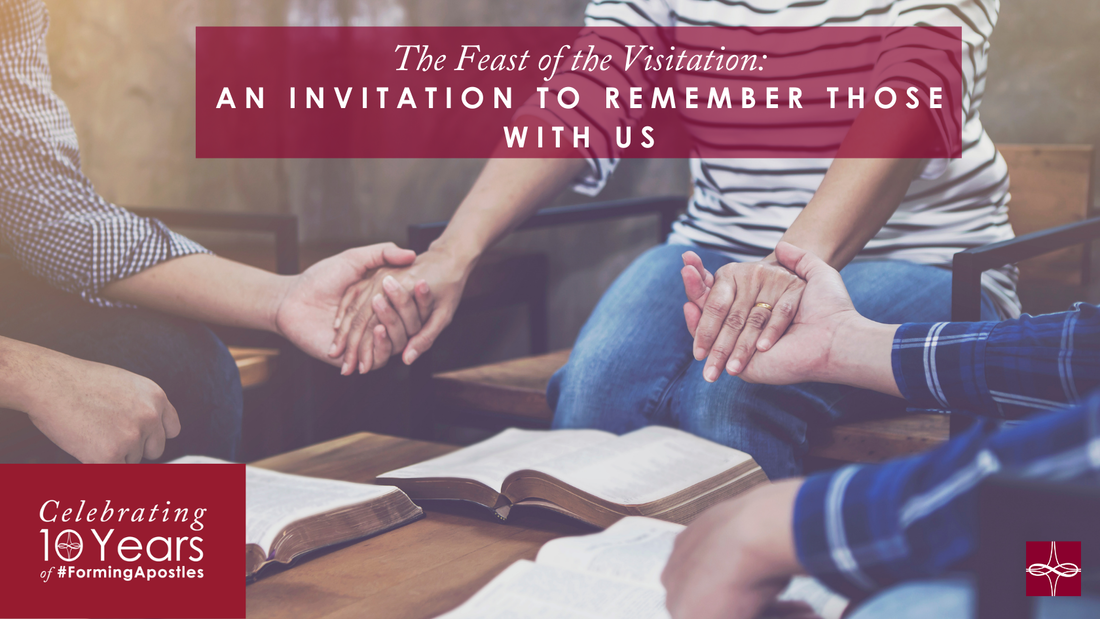
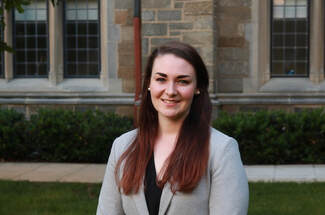
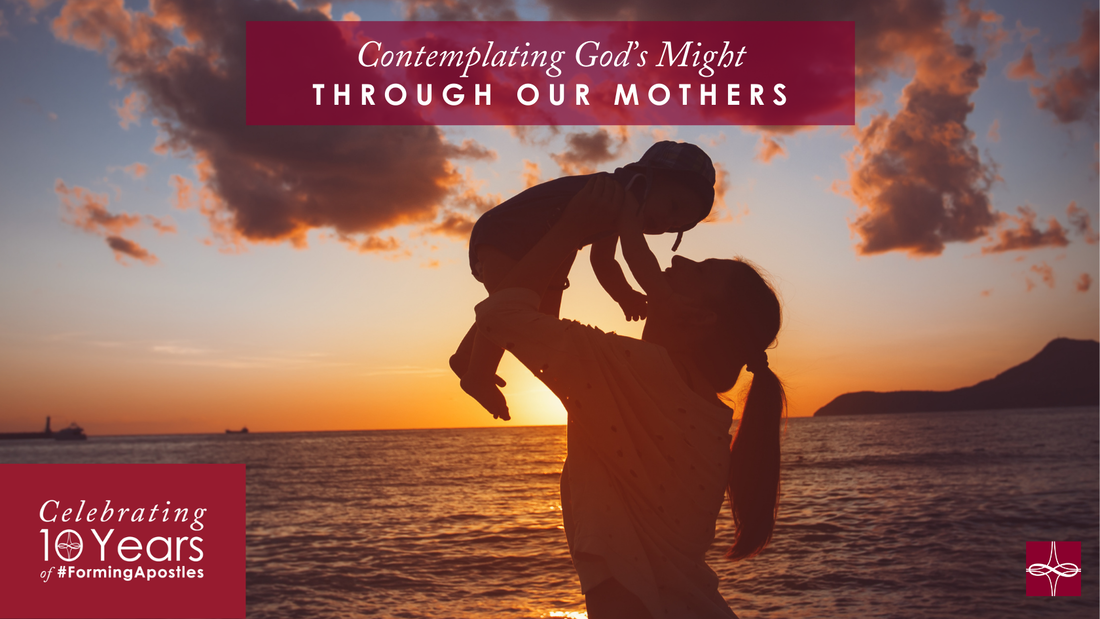

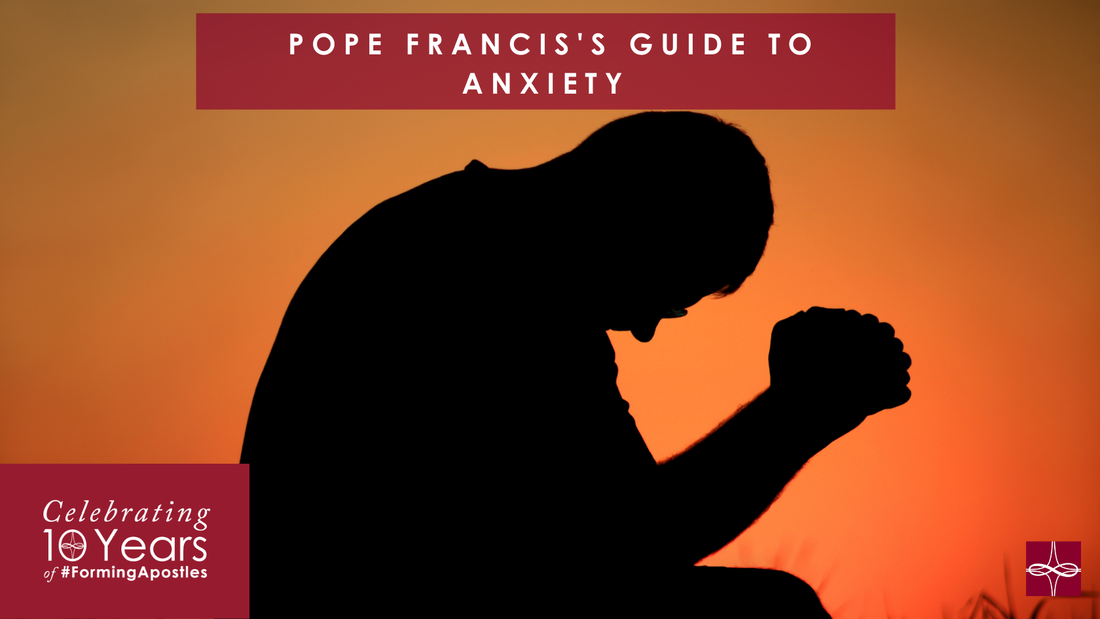

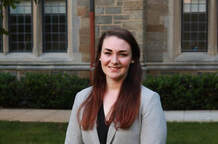
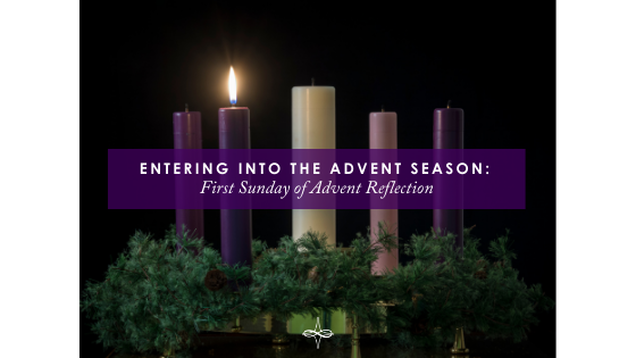
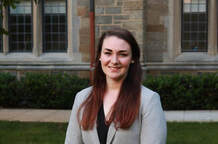
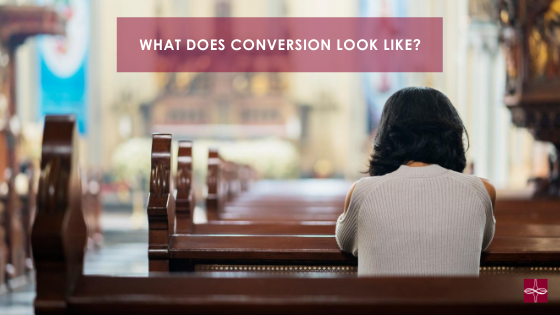

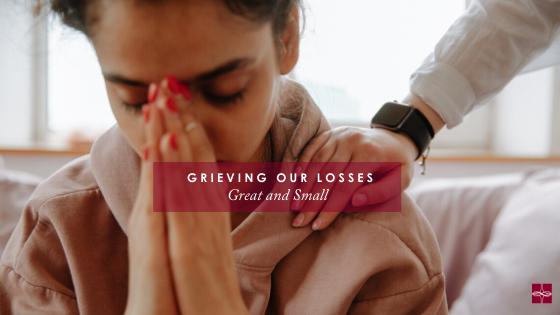
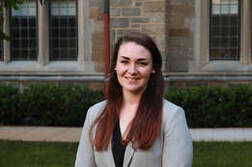
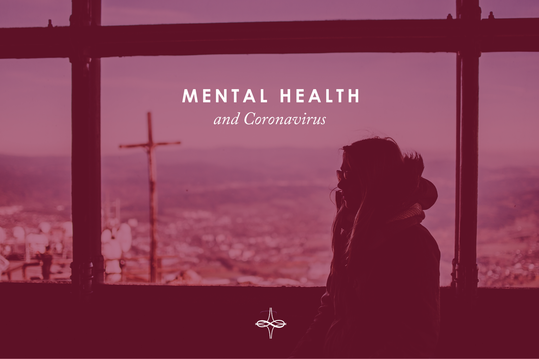

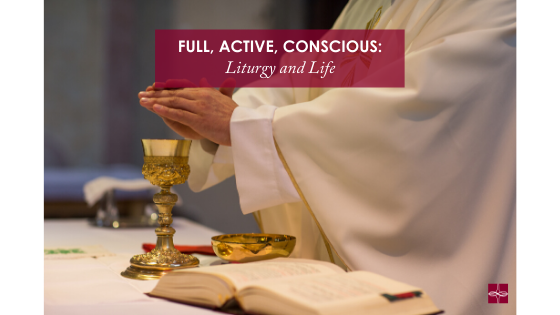


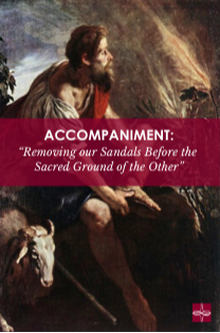
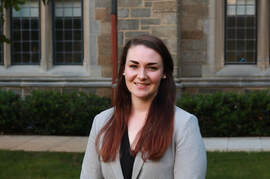
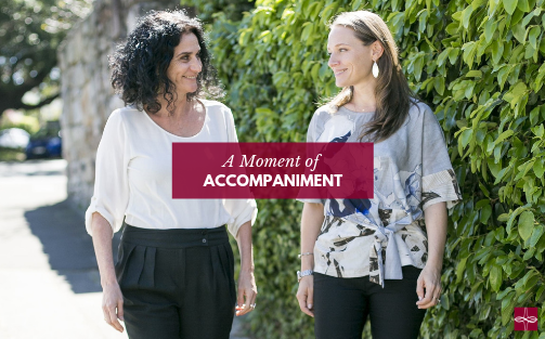


 RSS Feed
RSS Feed